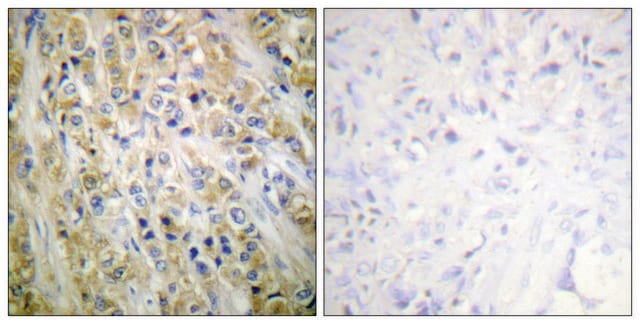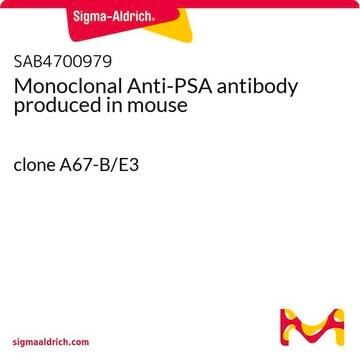P3235
Prostate Specific Antigen from human semen
buffered aqueous solution
Synonyme(s) :
Cancer-associated PSA, PSA
About This Item
Produits recommandés
Source biologique
human semen
Niveau de qualité
Pureté
≥99% (SDS-GE)
Forme
buffered aqueous solution
Numéro d'accès UniProt
Conditions d'expédition
wet ice
Température de stockage
−20°C
Informations sur le gène
human ... KLK3(354)
Vous recherchez des produits similaires ? Visite Guide de comparaison des produits
Description générale
Actions biochimiques/physiologiques
Forme physique
Code de la classe de stockage
11 - Combustible Solids
Classe de danger pour l'eau (WGK)
WGK 3
Point d'éclair (°F)
Not applicable
Point d'éclair (°C)
Not applicable
Certificats d'analyse (COA)
Recherchez un Certificats d'analyse (COA) en saisissant le numéro de lot du produit. Les numéros de lot figurent sur l'étiquette du produit après les mots "Lot" ou "Batch".
Déjà en possession de ce produit ?
Retrouvez la documentation relative aux produits que vous avez récemment achetés dans la Bibliothèque de documents.
Les clients ont également consulté
Notre équipe de scientifiques dispose d'une expérience dans tous les secteurs de la recherche, notamment en sciences de la vie, science des matériaux, synthèse chimique, chromatographie, analyse et dans de nombreux autres domaines..
Contacter notre Service technique








